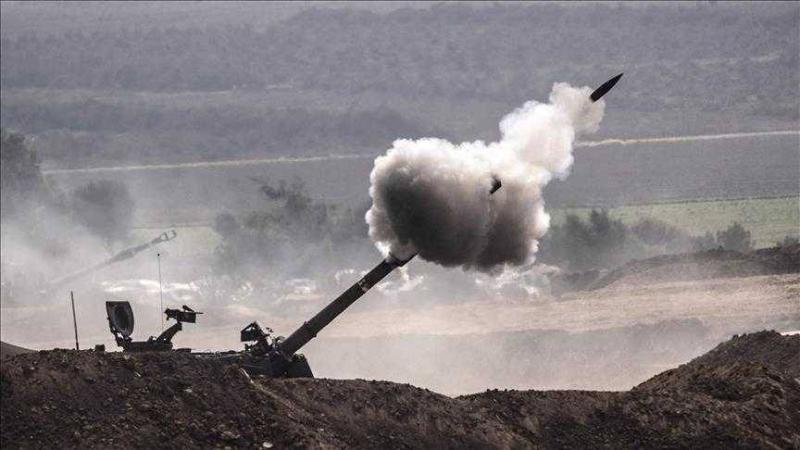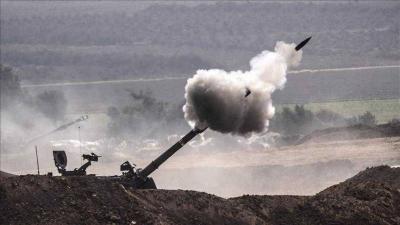The shocking scenes of flash floods and landslides that swept through Lebanon from north to south on Saturday reflect a poignant image of the state's collapse, becoming more entrenched every day on all levels, as reported by "Nidaa al-Watan." The storm could have been a blessing, but it, as with every time, turned into a curse after waters inundated homes, streets, cars, shops, and agricultural lands in most Lebanese regions. These areas pay, with every weather system, the price of negligence from both officials and some citizens alike. In Lebanon, this resulted solely in severe material losses, as described by the civil defense, whose efforts throughout the day prevented any loss of life. They rescued dozens of citizens trapped by floods and snow in their cars and evacuated a number of cracked and threatened buildings.
However, the specter of death followed Lebanese into Syria, as four members of a family from Jabal Mohsen in Tripoli were killed when floods swept their vehicle in the countryside of Tartus. Nature's fury did not overshadow the escalating developments along Lebanon's southern border, where "Hezbollah" intensified its operations against the Israeli army, which in turn continued its air and artillery bombardment of most border villages, declaring a "preemptive strike" against the party in the south, targeting a series of its sites.
Meanwhile, Israeli Chief of Staff Herzi Halevi stated that "Hezbollah" has "chosen to be a shield for Hamas at the behest of Iran," adding that "southern Lebanon is a war zone and will remain so as long as the party operates from there, which could turn all of Lebanon into a battlefield, and this will have a heavy price." Concerns about the expansion of the conflict in the region to include Lebanon were again expressed by Jean-Pierre Lacroix, the UN Under-Secretary-General for Peace Operations, and Josep Borrell, the High Representative for Foreign Affairs for the European Union, in separate statements summarizing their recent visits to Beirut.
While Lacroix expressed concern over the violence along the Blue Line, he emphasized the importance of a ceasefire and that all parties adhere to Resolution 1701 to avoid the risk of a larger and more destructive conflict. Borrell warned of the dangers of the conflict expanding in the region due to rising tensions at the Lebanese border, as well as Houthi attacks in the Red Sea. He expressed deep concern over the possibility of Lebanon being drawn into a conflict with Israel and stated his desire to help prevent such a catastrophic development.
Politically, according to "Nidaa al-Watan," the violation committed by the caretaker government, by refraining from issuing three laws and returning them to the House of Representatives, became the center of wide-ranging criticism from many deputies. Consensus emerged in the positions calling for the Cabinet to stop violating the constitution and laws and encroaching upon the President's powers amid the presidential vacancy. On a related note regarding the presidential file, Samir Geagea, the head of the Lebanese Forces party, addressed Parliament Speaker Nabih Berri, saying: "We are ready to attend any presidential election session called by you in consecutive rounds until a new president is elected, but while ensuring, of course, the right of every parliamentary bloc and every deputy to vote for whoever they see fit."
Meanwhile, the Higher Islamic Sharia Council confirmed that "constitutional life cannot be established or stabilized without electing a president of the republic," expressing the belief that the continued obstruction of electing a new president drives the caretaker government to make decisions regarded as "the least of evils."




